Your support helps us tell this story
As your White House correspondent, I ask tough questions and seek answers that matter.
Your support allows me to be in this room, pressing for transparency and accountability. Without your contributions, we would not have the resources to challenge those in power.
Your donation allows us to continue doing this important work, keeping you informed every step of the way toward November’s election.
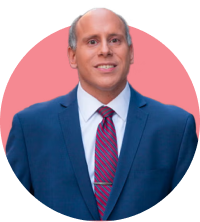
Andrew Feinberg
White House Correspondent
“I looked at myself in the mirror. There was nothing wrong with me. I just didn’t know how I was going to get through it. I knew I had to, because I had three kids, but I didn’t know How.” As Adam Smith spoke, I could see embryonic tears clinging to his eyeballs, determined not to spill past the dam of his lower eyelids. Frankly, I saw the same kind of tears on my side of the table.
It’s strange to hear the sound of punches piercing through the background noise of a west London cafe, rather than the background noise of a sold-out arena. On an autumn morning in Acton, Smith speaks amid the occasional hiss of a milk steamer and the clink of cups and saucers, rather than the thud of punches and the roar of a drunken boxing crowd. Yet here he is. No microphone, no headset: raw and unfiltered.
It’s no surprise that Smith is a master of storytelling. Over the course of our 90-plus minute conversation, he reels off tale after tale from his three-decade ringside career with Sky Sports, and names legendary names after legendary names (but never brags about them). He does it with the ease and enthusiasm of a job, and once he reveals that he studied Theatre and Drama at university, it makes sense that he speaks like a voice actor: not so much punctuating words with gestures, but rather getting them out of his mouth with gestures. Every now and then, he’ll raise his eyebrows to pronounce a word, as if it were tied to a string, then toss it across the table with an outstretched hand.
But when Smith gets to the most compelling story of all – his own – he pauses for the first time, and has to search for the right words. The enthusiastically raised brow is replaced by a furrowed, anxious frown, as he recalls his harrowing experience with cancer over the past two years.
“Yeah, I… uh… It was… It was a brutal time,” the 53-year-old finally managed to say. “I’m very, very lucky to be here today. I didn’t feel well physically or mentally, something was wrong,” he continued, recalling early 2023. “Eventually I found blood in my urine. It was sporadic, but I know people who have had prostate cancer, so I monitored it until it got worse.”
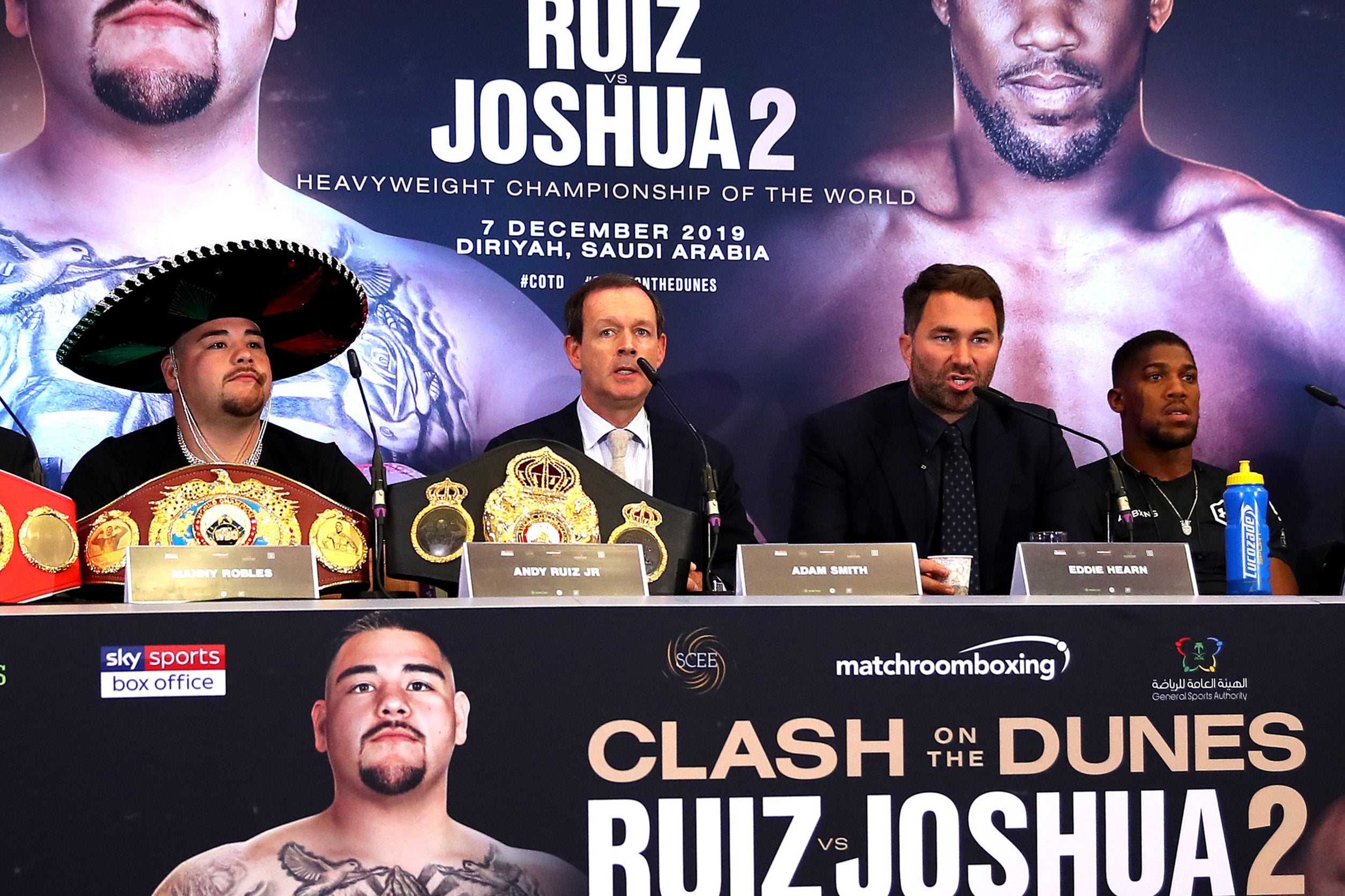
Smith, who had never taken sick leave in his 29 years at Sky, and who could not recall taking sick leave while at school, eventually went to the doctor and was given antibiotics for a suspected urinary tract infection. The antibiotics had no effect, and Smith still felt exhausted from day to day.
“Someone said to me, ‘You look like you’ve lost a little weight,’ and I thought, ‘I have cancer.’” Right away? “Yes,” Smith confirms. “I didn’t know what [that made me think that]. I went back to the hospital, and they said my kidney levels were low, my white blood cells were all over the place. They said it was one of three things: a urinary tract infection, gallstones, or bladder cancer.
“The NHS put me on a very quick programme. I had a CT scan, and then I got a call straight after that. I went back and I knew it was serious. A urologist said I needed a nephrostomy. [a tube inserted into the kidney] and a biopsy. He showed me the results and said: ‘This is one of the largest tumors we’ve ever seen in the bladder, and it’s very close to the bladder wall.’ My kidneys were failing, so I had about four days to have a nephrostomy or I wasn’t going to make it. I had it within two hours, and the biopsy was done the next day.”
It was almost absurd, but the bad news was about to get worse for Smith.
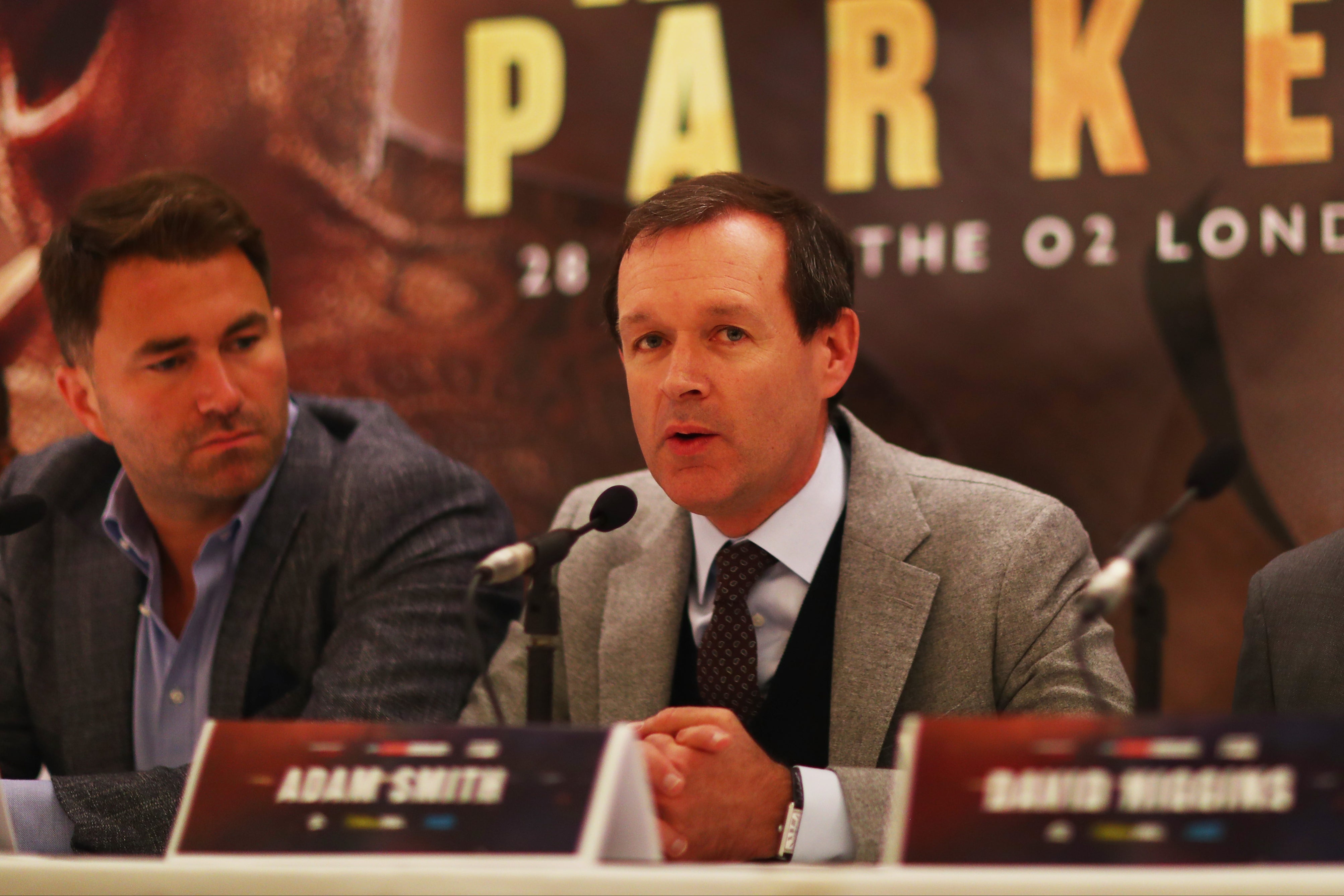
“After that, I was in the ward. I remember eight urologists in purple coming in, drawing the curtains, and one of them said: ‘Adam, I know you’ve had a tough few weeks, but we have some very serious news.’ I thought they were going to tell me I was dead. I thought I had six weeks or so to live.
“They told me I had invasive, aggressive bladder cancer, and it was going to break through the muscle wall. ‘You need to have surgery straight away, your bladder, your prostate, and a stoma for life. And we’ll see if it’s spread.’ I had a six-hour operation, 19 lymph nodes removed. Luckily, it hadn’t spread, but I had three months of chemotherapy and learning how a stoma works. I ended up having over 150 blood tests and spent three-and-a-half months in four different hospitals – two NHS, two private.”
Smith has had a tough time over the past two years. Whispers of his sudden absence from Sky in 2023 were a testament to his enduring presence over the past 30 years, and they were only silenced late last year when he made the shock announcement that he had been diagnosed with cancer – but he is now, thankfully, cancer-free. The news was accompanied by a statement about his departure from Sky, a team he still holds in high regard, and his first appearance at a boxing event in a year came in the form of Katie Taylor’s rematch with Chantelle Cameron in Dublin in November.
Nine months later, it was a joy to see him walk through the door looking good, and to hear his trademark voice – always reassuring and often commanding – once again. But it wasn’t that simple.
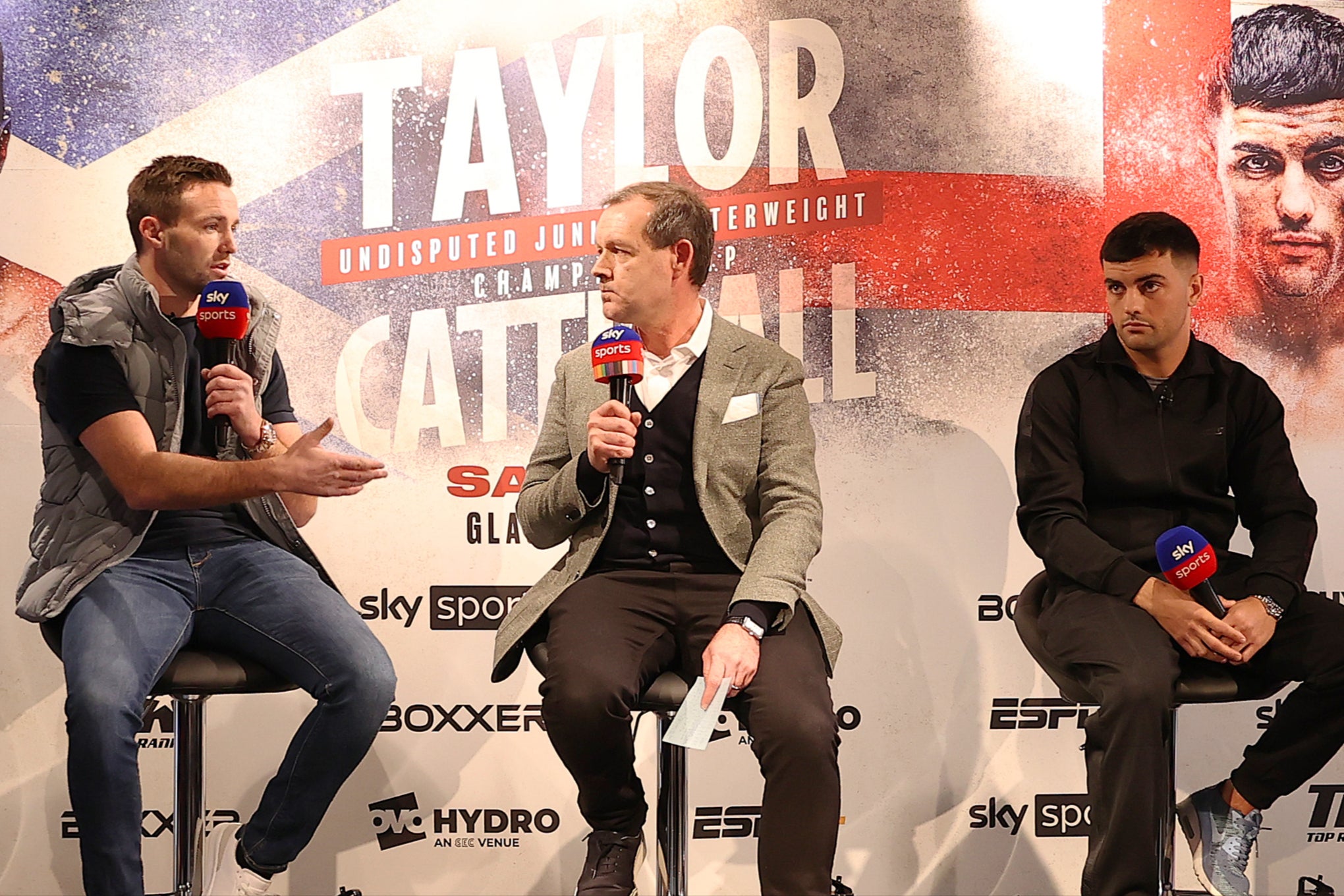
“I look healthy, but underneath it all I have is a broken body,” Smith admits. “I’ve lost most of my body. A lot of people are in a lot worse situations, but this is a tough new life. You have to have a tube at night, it’s not easy. And after the operation, last spring, I had an ileus: my whole body was blocked, I couldn’t get food in for 10 days. I lost four stone, then my bowel twisted. Everything was wrong. I was a mess, I was in pain, I couldn’t move.
“The hardest thing was learning to walk again; I had to sit on a chair in the bathroom for a few months, because I couldn’t stand. But my family were amazing, Sky was amazing. I still have a lot of lonely nights, but I owe everything to my doctor. I went to my bladder consultant at the end of last year and I said: ‘To be honest, I don’t think I’m going to make it.’ He said: ‘To be honest, I don’t think you’re going to make it either.’”
Smith gradually learned to walk again, moving a little more each day, and eventually helping out at food banks and charities for the homeless.
“I go to food banks and see people in wheelchairs who are happy to get a can of sweetcorn and some fresh vegetables, and I think about how lucky and privileged I am in life,” he said. “I may never be 100 per cent again, but I’ve gained weight back, I’m walking a lot, I’ve picked up a tennis racket. And my three kids have their dad. I’ll never be brave enough to get in the ring, but when I have to fight for my life…” It was one of those rare instances where the right word just wasn’t right for Smith.
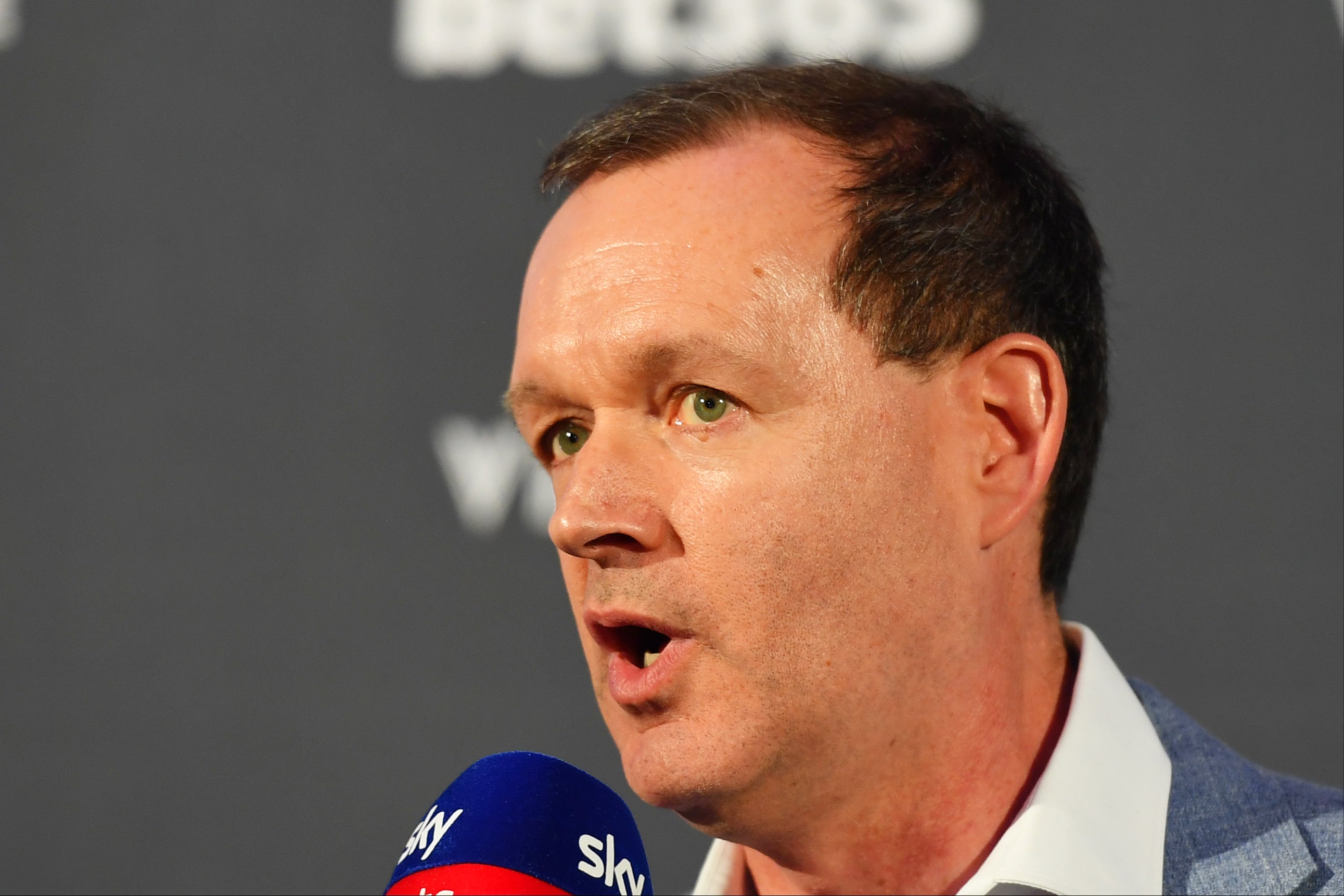
“I make sure I’m there for my family as much as I can now. And I want to say thank you to the boxing world. The boxing world can be a sour place, but the brotherhood of boxing is amazing. Anthony Joshua texted me late at night, talking about my physical and mental health. I got a message from Tyson Fury. Eddie Hearn [at Matchroom] was one of the first people to visit me in the hospital, Ben [Shalom at Boxxer] come to see me. I got messages from other promoters like Sauerland, Warrens, and many other fighters.”
Smith built those connections during a career at Sky that began in junior production roles in the mid-90s, with Smith beginning his career doing voiceover work before officiating fights involving the likes of Floyd Mayweather, Oscar De La Hoya, Roy Jones Jr, Lennox Lewis, “Prince” Naseem Hamed, Chris Eubank and Ricky Hatton. Eventually Smith became Sky’s Head of Boxing, giving him the opportunity to mentor fighters, and with the development of women’s boxing proving to be a major boost.
Now, that element of his work has been updated. Smith has been asked to join management company Summit Sports and boxing promotion GBM Sports, where he serves as a director and advisor. Smith said he wants to be there for athletes on “the tough days,” noting that “from a mental health standpoint, boxing in particular is a really, really tough career. You can get injured, lose fights, lose your fan base, and fall out of favor with promoters.”
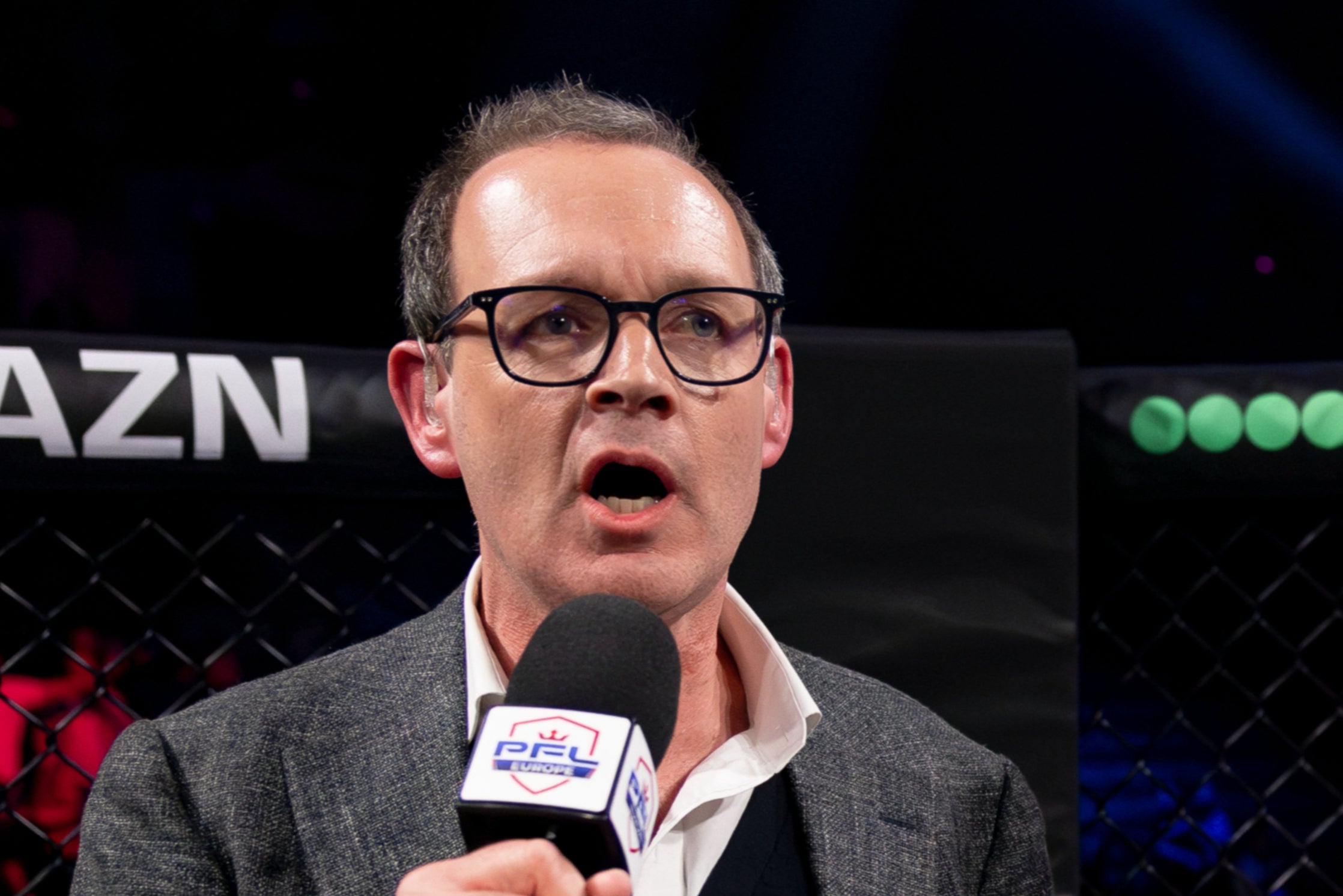
“All our fighters at Summit are undefeated so far, but one day they will be undefeated. I remember AJ came to my house a few years ago, he was sitting with my kids doing their homework, and he must have been 14-0. I said: ‘What are you going to do if you lose?’ He said (Smith uses his old acting skills to portray an angry Joshua): ‘What? I’m not going to lose.’ I said: ‘You’re going to lose, but that’s OK, everybody loses! But let’s put it another way: What are you going to do after boxing?’ And he did lose, but losing makes you win! Winning is the bigger story.”
Smith is in the midst of a comeback story. This year, alongside his work at Summit and GBM, Smith has broadcast on the radio for Talksport and the BBC – fulfilling a lifelong dream. And in his new ventures, he has provided mixed martial arts commentary for the PFL – a challenge he has relished in much the same way as some of his previous darts commentary on Sky – and launched a boxing podcast on Lounges.tv.
More than 40 years after turning down the volume on his TV to deliver his own opinions on tennis, Formula One, Liverpool games and the Grand National, Smith still plays the soundtrack to definitive sporting moments.
“I’ve been given a second chance at life,” he said. “Whether I’m here for another 30 years or just today, I’m a very lucky kid. And with the job I have now, I’m more at peace; it’s not a matter of life or death – I’ve been through it.”
#Boxing #voice #beating #cancer #fight #life